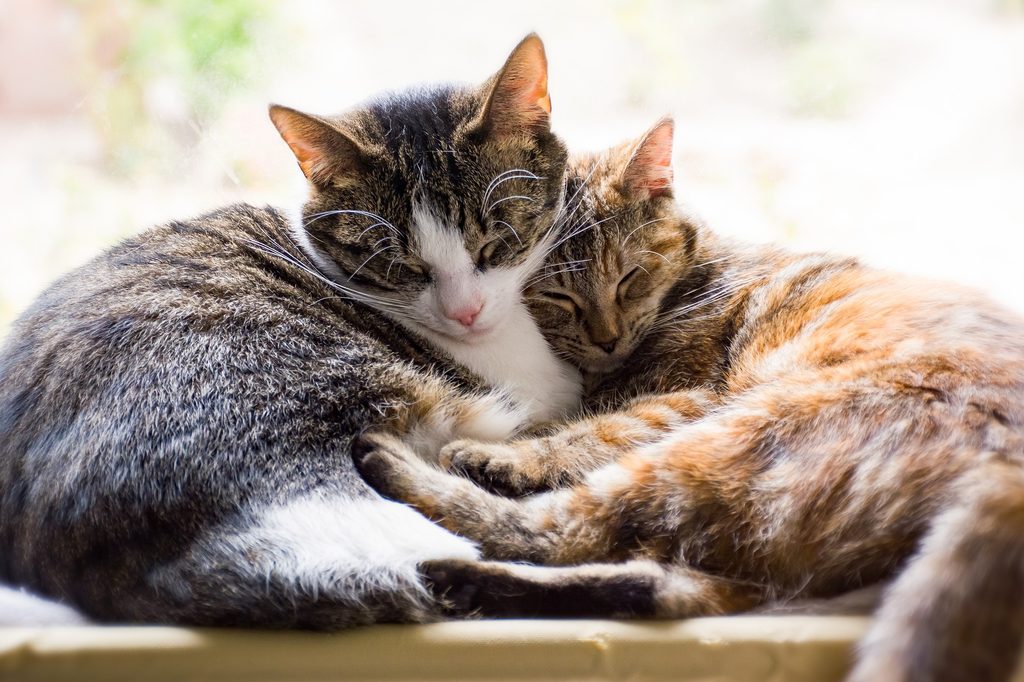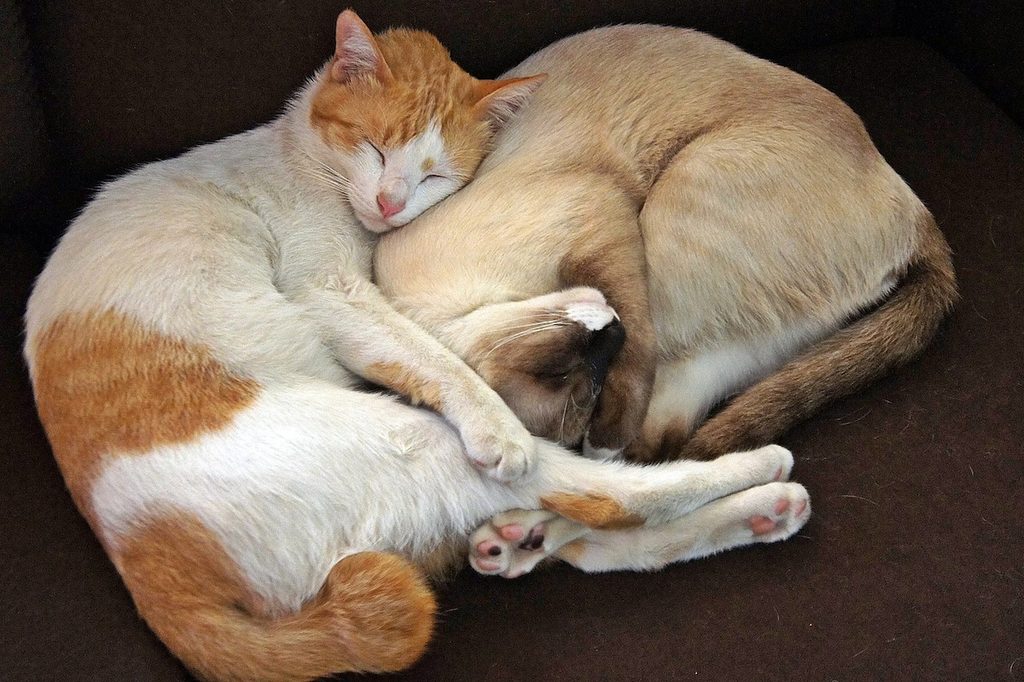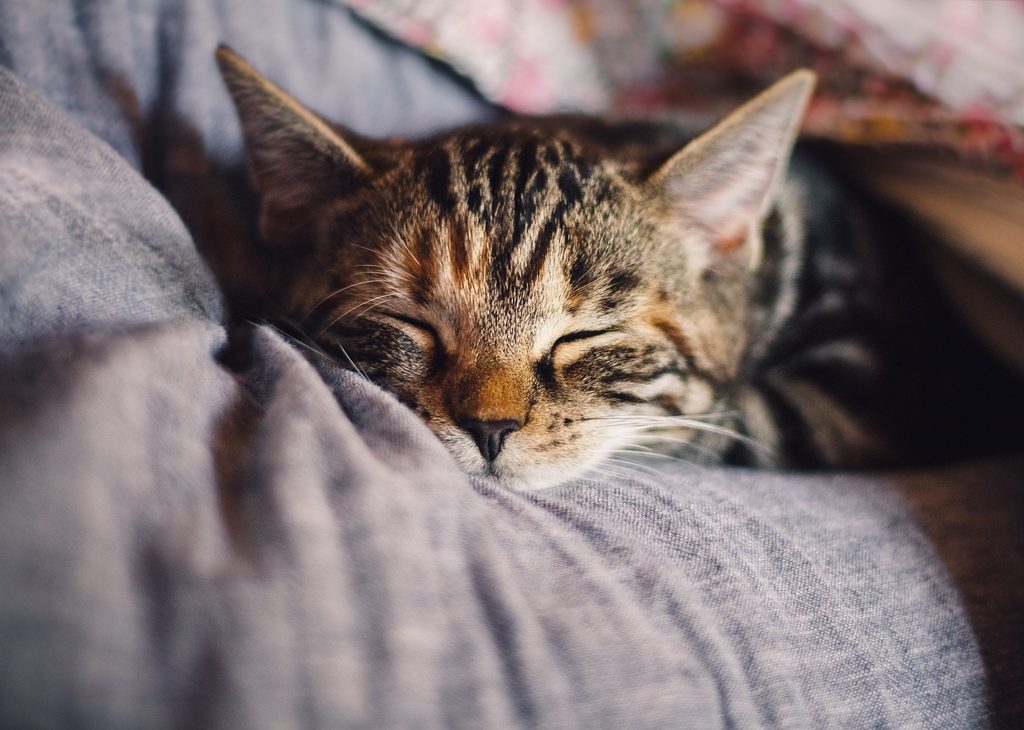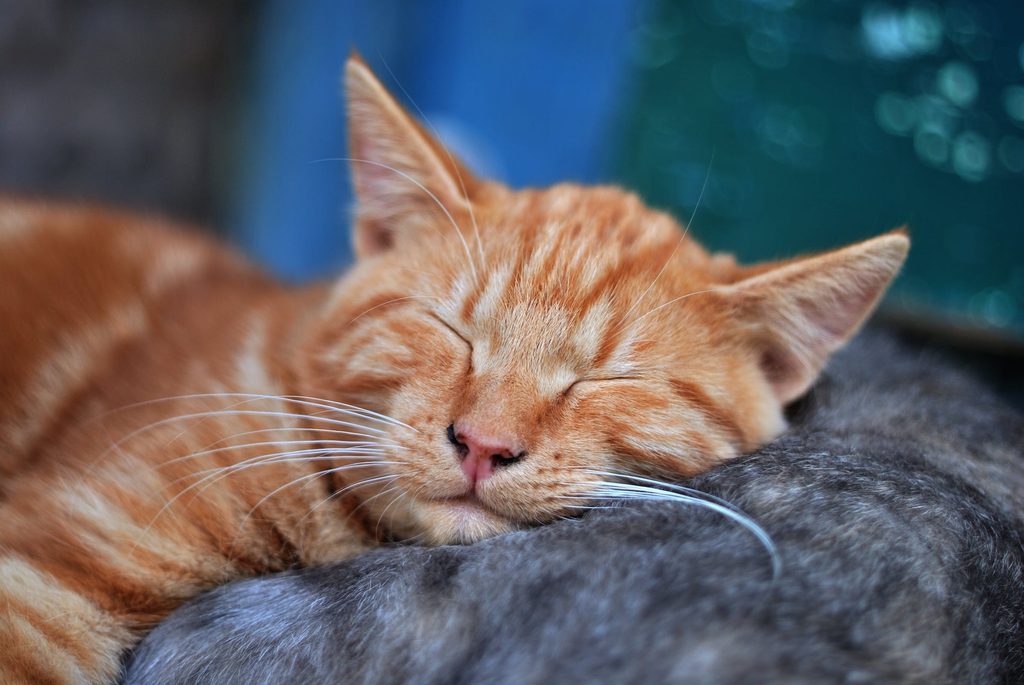
Odds are, you have at least a few things in common with your cat. Maybe you both enjoy some quiet time in front of the television or maybe your feline friend loves cheese as much as you do. One thing you almost certainly have in common, though, is an affinity for sleep. After all, who doesn’t love curling up in bed on a chilly winter morning? Even cats sleep more in winter!
As sweet as it may be to snuggle up for a snooze with your cat by your side, some cat owners find themselves wondering if their kitty is actually sleeping too much. It can be tricky to know what to expect when you’re not an expert in feline sleeping habits — but that’s where we come in. We’ll answer questions like: how much do cats sleep, why do cats sleep so much, and should you should be concerned about their frequent snooze sessions.

How much do cats sleep?
The reason it seems like your cat is sleeping so much is because they are. Felines require about twice as much sleep per day as their owners do, so don’t be surprised if you catch your buddy snoozing 13 to 16 hours per day. And that’s just for a healthy adult cat. Older cats, kittens, mama cats, and those with health problems might need even more time to rest and recoup. Purina notes that kittens can sleep for up to 20 hours per day!
Remember, cats don’t get all their sleep in one sitting, either. They really do take “cat naps,” which can last for about 15 to 30 minutes at a time. They may briefly wake up and go right back to sleep for cat nap number two, or they may be a bit more active between naps. This is an instinctual habit that allows felines to rest without falling into too deep of a sleep, which could leave them vulnerable to a number of different dangers.

Why do cats sleep so much?
Cats naturally spend a lot of time napping, but it’s not always clear why they need so much sleep or when it’s normal for sleeping habits to change. Luckily, a little education goes a long way. These are the common factors that drive a feline’s snoozing schedule, including why your cat sleeps so much.
Cat naps save a lot of energy
When taking many short cat naps throughout the day, it may seem like your cat is sleeping the entire day away. The reality is that they’re spending much of that time resting and not truly sleeping. They may even stay in the same spot between cat naps due to factors like limited mobility, laziness, or energy conservation.
This is especially helpful because cats are natural predators. Hunting, eating, and even just playing use up a lot of energy, and they need to replenish it through — you guessed it — sleeping. Similarly, your cat may conserve more of their energy during the day (which means more napping) so they can be more active at nighttime. This is natural for crepuscular creatures like cats that are most active at dawn and dusk, and it’s no reason to be concerned.
Your cat may sleep more when feeling stressed, sad, or bored
Although frequent sleep is often a good thing, there are times when it can be a sign of something slightly amiss. Sometimes, a cat may sleep more after experiencing a lot of stress, because worrying is exhausting. Many people can relate to a change in sleeping habits when feeling stressed or depressed, though it can be trickier to identify when a cat is going through a difficult time.
If you notice an unexplained change in your cat’s sleeping habits, it may not be a bad idea to read up on feline boredom and stress. If they don’t return to normal within a few days, visiting the vet isn’t out of the question either.

When to be concerned about a cat sleeping too much
Most of the time, you don’t need to be concerned about a cat that seems to sleep a lot. The exception, however, is if you notice an extreme or sudden change. The increased nap frequency that happens with age will happen more gradually, for example, but a cat that’s sleeping for 14 hours one day and 20 hours the next might warrant a closer watch. This is more likely a sign that your cat is sick, injured, or severely impacted by stress or sadness.
If you notice any other sudden changes in your fur baby’s behavior or appearance, don’t hesitate to contact your veterinarian. Please give them a call if:
- Your cat has experienced unexplained weight loss
- Your cat refuses to eat or drink
- Your cat is overeating
- Your cat has extreme or unexplained vomiting or diarrhea
- Your cat is acting irritable or showing signs of pain
Even if your kitty is only fighting a common cold, it’s always better to be safe than sorry when it comes to your best furry friend. It’s always a good idea to keep an eye on your cat if anything about their routines or behaviors changes, but there’s also no reason to jump into a panic. Most of the time, cats are not sleeping too much at all.



